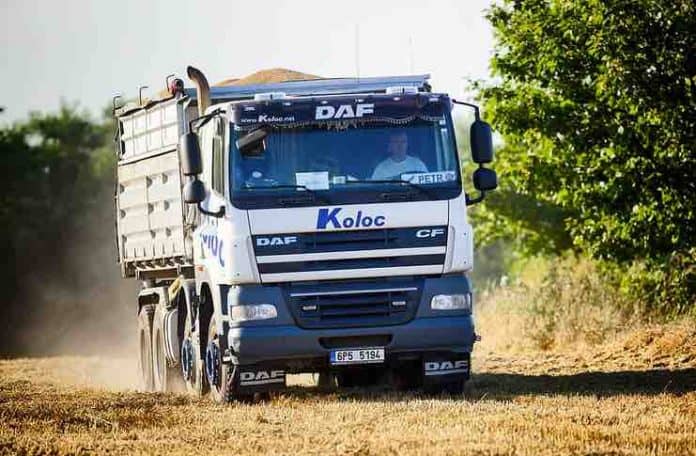
Being in the transport business these days can be a good idea. We just need to look around and see how many people are trying their luck at being drivers for GRAB, Angkas, Lalamove, and more. There’s a reason for this. Demand. More and more people are getting online, discovering the wonders of LAZADA, Shopee and other e-commerce hubs where they can get everything, cheaper, and delivered right to their house. All this e-commerce craze is fueling up a huge demand for transportation services. Trucking is a big part of this and could be your next business endeavor.
The transportation and logistics sector entails great potential for truck drivers or entrepreneurs who wish to own a trucking business, but remember – it’s getting highly competitive out there. If you’re serious about starting a trucking company, but aren’t sure where to start, here’s a short guide to drive you in the right direction.
1. Start with Composing a Business Plan
Like with any other sort of business, also a trucking business requires a professional business plan. You need to have a big picture of your way forward, from the very early start-up phase, up to growing and expanding in the upcoming years.
Your business plan will also detail the exact niche you chose in the trucking industry. There are quite a few niches in this sector, so you better decide which ones you’ll focus on. Here are some of the common ones:
- Courier Service Trucks
- Dump trucks
- Delivery trucks
- Truck Leasing
- Moving trucks
- And more…
A good business plan will help you get up and running, motivate you and possibly your investors (if you’ll get any). Preparing a business plan might seem like complex homework, but nowadays it’s quite simple. There are lots of business plan templates online – which give you the main points and you just need to fill it up. Check our post about tips for writing a good business plan in the Philippines.
2. Get all the Necessary Business Licenses and Permits
It’s advised that you get all the right licenses and permits before you start the operations of your trucking business. There is lots of paperwork and bureaucracy – so don’t let it scare you away from driving your truck business forward. Here are some of the bureaucratic tasks you’ll need to do:
- Present all the necessary documents:
- Prepare a Request Letter that is addressed to the director of the Philippine Economic Zone Authority (PEZA)
- Prepare at least one Endorsement Letter from a prospective PEZA company/clients
- Prepare a Notarized Application Form (from PEZA)
- Prepare a Notarized Annex “A”-Anti-Graft Certificate
- Prepare a Notarized Board Resolution allowing the filing of the application and the designation of a representative
- Prepare a list of employees with their positions
- For partnership and corporation, submit a Certificate of Registration from SEC; for single proprietorship, submit a Certificate of Registration from DTI
- Prepare your Certificate of Registration or BIR Clearance
- Prepare your Mayor’s Permit
- Prepare your Standard Schedule of Service Rates
And many more…but don’t worry – the relevant authorities will explain and detail any further items you’ll need to prepare.
3. Purchase or Lease Your Trucks and Equipment
This is probably the most important step in building your business. It’s crucial that you choose the right truck and equipment for your transport business. These are expensive items, so making big mistakes in this stage can mean a lot to your business. We recommend you consult with a few truck experts, make a thorough research before deciding which trucks to buy.
There are also other decisions in this stage of building your trucking company – that can make the difference between success and failure. For example – if you’ll be focusing on delivering perishable goods – you should consider adding a refrigerated compartment to your trucks.
What about the purchase itself, will you buy or lease your trucks? If you decide to buy, you’ll probably need some help in financing this big purchase. Many banks in the Philippines offer truck loans, like Security Bank. If you’re an OFW in Australia, for example, you might want to try other solutions that focus on Truck finance.
4. Get a Proper Insurance for Your Business
As an operator of a trucking company, you will be required to obtain business insurance that will cover you, your drivers, your valuable trucks and your client’s valuable cargo. The most effective way to get the best offer is to contact several insurance agents (and of course tell them you are talking with other agents – so they have an incentive).
5. Always Stay in Compliance with Government Rules and Regulations
Running a transportation business means adhering to lots of Government rules and regulations. You’ll need to stay up to date on time-sensitive filing requirements, ranging from quarterly tax returns to multi-year licenses and permit renewals, and much more. If you fail to keep up with some of these requirements – you might get hefty fines in the good scenario, and get your business shut down in the worst scenario. Make sure you always stay in compliance with all the government regulations.
As the title says, this is a short guide to starting a trucking business. There are of course many more items that we didn’t include like marketing. You can check our posts on network marketing or using Google ads to market your business.
Kyle Kam is an online marketing specialist for Moneymax.ph, the Philippines’ leading financial comparison website. Whenever he’s not working, he’s busy at home watching MMA videos the whole day. You may follow him on Twitter @undisputedkyle




